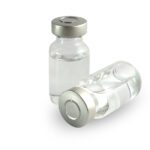
Oct 6, 2021 | News
In his article for Intellectual Asset Management (IAM), Life Sciences Reporter Adam Houldsworth discusses the weaknesses in the US patent system that enable the “thorny” problem of patent thickets. MGA’s report, “How Patent Thickets Constrain the US Biosimilars Market and Domestic Manufacturing,” was featured heavily in the article to provide evidence of the growing problem.

Sep 10, 2021 | News
In Intellectual Asset Management (IAM), Fresenius Kabi Intellectual Property Chief Rachel Moodie discusses the worsening problem of patent thickets in the U.S. biosimilars market. Featured in the article is MGA’s report on patent thickets, as well as a quote from MGA’s Christy Robinson, who voiced her concern regarding the future of the biosimilars market.

Jun 18, 2021 | News
The Center for Biosimilars has announced that MGA’s recent report, “How Patent Thickets Constrain the US Biosimilars Market and Domestic Manufacturing,” was the top-read article on its website for the week of June 14, 2021.

Jun 10, 2021 | News
On Thursday, The Center for Biosimilars, a sister site of The American Journal of Managed Care, published an article discussing the differences between the patent systems in the United States and Europe when it comes to biosimilars. The article featured the latest report released by MGA, and authored by Alex Brill and Christy Robinson, titled “How Patent Thickets Constrain the US Biosimilars Market and Domestic Manufacturing”:

May 24, 2021 | Press Releases
“How Patent Thickets Constrain the US Biosimilars Market and Domestic Manufacturing,” authored by Alex Brill and Christy Robinson, explains how reference biologic manufacturers create thickets of overlapping, weaker follow-on patents to keep competitors from entering the market. The paper highlights how originators have strong incentives to protect their profit streams and have found patent thickets to be an easy way to significantly extend the duration of monopolies in the US, preventing access to more affordable medicines for patients.
















